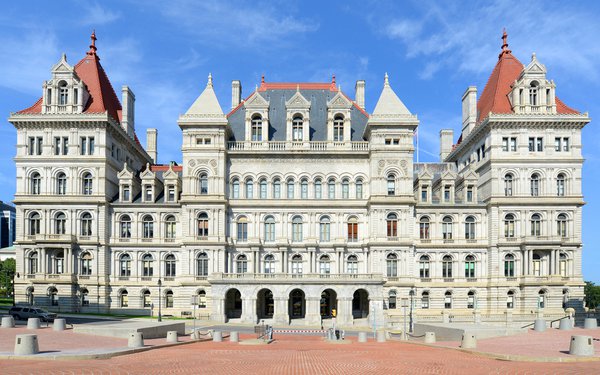
The broadband industry is telling a federal appellate
court that New York State lacked authority to enact a 2021 law that attempted to require carriers to offer service to some low-income households at a cost of no more than $15 a month.
In
papers filed Wednesday with the 2nd Circuit Court of Appeals, a coalition of industry groups argues that federal communications law overrides state attempts to set broadband rates.
“New York’s law intrudes on an exclusively federal field,” the lobbying groups write. “More than 100 years ago, Congress occupied the field of rate regulation of interstate
communications services ... That federal occupation of the field preempts New York from regulating the rates of interstate broadband service.”
The organizations also argue that New
York's law conflicts with the Federal Communications Commission's 2018 order that repealed the Obama-era net neutrality rules. That deregulatory move involved reclassifying broadband from a
“common carrier” service to an “information” service; common carriers are subject to more regulation than providers of information services.
advertisement
advertisement
The organizations (New York
State Telecommunications Association, CTIA--The Wireless Association, ACA Connects--America's Communications Association, US Telecom--The Broadband Association, NTCA--the Rural Broadband Association,
and Satellite Broadcasting & Communications Association) are urging the 2nd Circuit to uphold an order issued last year by U.S. District Court Judge Denis Hurley in Central Islip, New
York.
Hurley invalidated the New York law on the grounds that it conflicted with federal communications law, as well as the FCC's 2018 move to deregulate broadband.
New York Attorney
General Letitia James appealed that ruling to the 2nd Circuit. Among other arguments, she says that the Communications Act leaves room for states to pass and enforce their own consumer-protection
laws.
The 2021 law “resembles state consumer-protection and tax measures that courts have repeatedly upheld,” James argued. She added that Hurley's ruling could prevent state
officials from policing broadband providers' advertising practices, or imposing privacy rules on providers.
“Such sweeping displacement of state authority would leave a regulatory void
that finds no support in the Communications Act,” she argued.